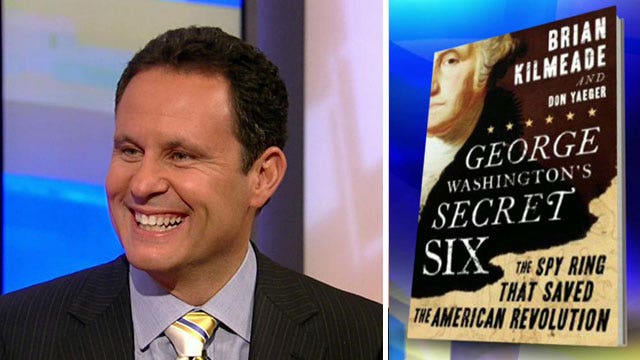Every era has its heroes—a handful of names that stand out as the masterminds and superhuman workhorses, names that immediately invoke iconic images and harrowing tales.
The history of the American Revolution has an especially rich roll-call of heroes: George Washington, Benjamin Franklin, John Adams, Betsy Ross, Paul Revere, Nathan Hale.
They led armies and negotiated with foreign governments; they created symbols to rally the troops and they gave us memorable stories and quotes about patriotism and sacrifice.
[pullquote]
And now, we propose six more figures be added to that distinguished list of household names we all recognize in an instant for their stories of heroism and selflessness.
"George Washington’s Secret Six," which was published by Penguin Press on November 5, lays out the daring twists and turns of the Culper Spy Ring in their quest to obtain intelligence form the British and help General Washington defeat the most powerful army in the world.
Abraham Woodhull (code name: Culper), Robert Townsend (Code name: Culper, Jr.), Austin Roe, Caleb Brewster, James Rivington, and a female agent (known only by her coded moniker of 355) -- very few people outside of a small corner of New York and Connecticut have ever even heard of these five men and one woman who helped determine the outcome of the war and changed the course of American history.
But that is precisely why we wrote this book -- to celebrate not only these six specific individuals, but also what makes America great.
The Culpers included a farmer, a longshoreman, a tavern-keeper, a store owner, a socialite, and a journalist.
They were a cross-section of America: working class and upper crust, entrepreneurs and hired hands. And they understood that the future of the nation rested as much with them as it did with the governmental leaders and public figures who captured the headlines.
Their tireless work saved the country from economic collapse, allowed for vital reinforcements from France to land safely on American shores, uncovered the treachery of Benedict Arnold, and even saved the day at the battle of Yorktown.
To say that the efforts of this one small ring were essential to the success of American independence is hardly an exaggeration.
But just as fascinating as their accomplishments were their personal lives. Through their letters we learn that they were at times scared, defiant, nervous, excited, anxious, depressed, determined, and heartbroken. In short, despite their heroics, they were ordinary people.
Like all heroes, they were men and women who risked life, limb, reputation, fortune, and honor to work for a cause bigger than themselves.
But like superheroes, they had secret identities unknown even to those closest to them -- even to General Washington himself.
Like superheroes, they lived double lives often steeped in danger and loneliness. And like superheroes, when the job was done, they went quietly home and resumed the extraordinarily ordinary task of day-to-day living.
Sure, there are famous heroes in history, whose names dot monuments and history books; but there are also the quiet heroes -- the ordinary ones who hear the call to serve and answer it without fanfare.
They are the ones who do not shy away when something great is asked of them.
These are the men and women, who, like the Culpers, are a different kind of hero.
They are the ones in the military serving at home and overseas, the ones working for the CIA and FBI, the first responders in our communities who lead two lives -- a private life at home and a life of public service, risking danger to protect our nation, our homes, and our lives.
They are the heroes of our own era and even though, like the Culpers, we may not all know their names, that does not mean they are not worth learning.









































